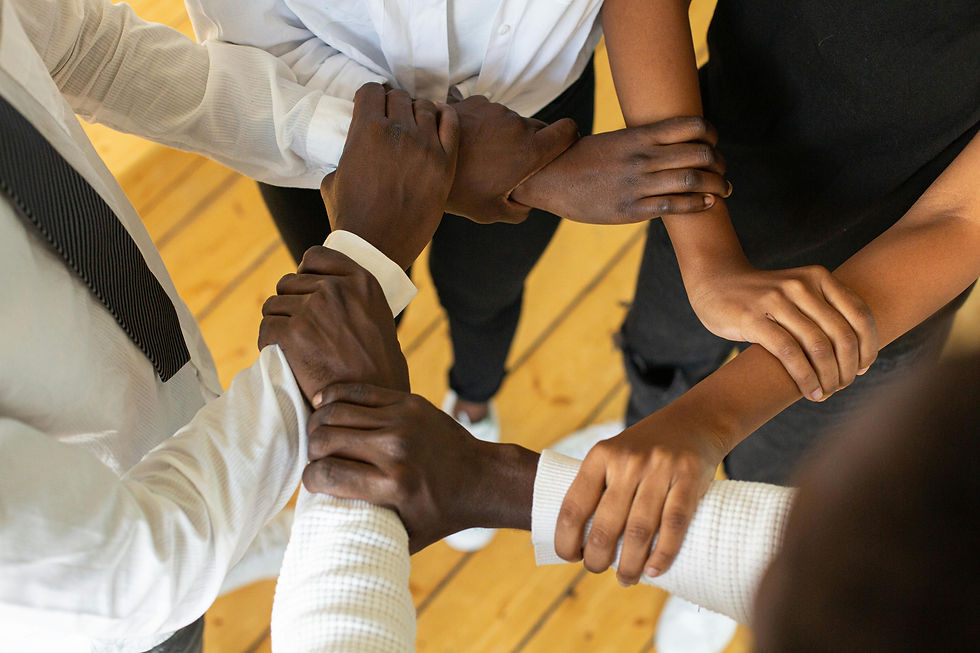Love and Longing after Lockup
- C. Dreams

- Feb 29, 2024
- 3 min read
Updated: Dec 9, 2024

Every morning, I still wake up with the weight of my past pressing down on me. Having been incarcerated and only recently released, the struggle of rebuilding my life and navigating relationships feels like traversing a treacherous minefield blindfolded.
Upon release, I found myself alone, yet hopeful venturing back into the world of dating would be a smooth transition. But as I gathered the courage to ask someone out, harsh reality hit: The stigma of being labeled a "felon" or “convict” hovered over a no-frills dinner date like a dark cloud.
In my quest for companionship, I found myself drawn to those with complex or injured family dynamics and background stories
The dilemma of when and how to disclose my criminal history gnawed at me relentlessly. Should I wait for the right moment or bare my soul from the very beginning? When will I know the moment is right? Ultimately, I choose transparency, laying my cards on the table during the nerve-wracking first date. The reactions from my dates varied from uncomfortable politeness to total rejection, each a blow to my already fragile sense of self and my need for belonging in a world I didn’t recognize anymore.
Navigating the landscape of love post-prison is like constantly walking on eggshells. Some individuals couldn't look beyond my past, while others seemed unbothered by it, just happy I was offering to pay the bill at dinner. Neither response gives me a solid foundation for discovering a meaningful connection, leaving me sinking in a sea of longing.
In my quest for companionship, I found myself drawn to those with complex or injured family dynamics and background stories, perhaps seeking solace in the familiarity of shared struggles.
For a short period, I dated Matt, a former pastor turned military man, with serious issues: a desire to fight God, as well as being unable to talk to his family. He refused to even talk about his mother and father because they were “still in a cult,” as far as he was concerned. Honesty and communication were an issue with him. (For some reason, he didn’t think it was important to tell me he was still married with two children and a newborn).
Then there was Kyle, who didn’t want to be with me but didn’t want anyone else to have me. His family and background story were chock full of manipulation, blame, abandonment and struggles for interactional dominance. All of this reflected into how he approached matters in his daily life, including romance. The part that still confounds me is how utterly unaware he was.
I recognized the irony of being drawn to individuals who lacked conventional familial support systems or come from deeply injured pasts. Each of us were birds with clipped wings, perhaps able to glide at times but never to soar.
Now, as I offer guidance to others freshly released from incarceration, I am intimately acquainted with the myriad challenges of reentering the dating scene. It's a daunting terrain littered with societal stigmas and personal insecurities. Forming genuine connections feels like an insurmountable feat when your identity has been reduced to an inmate number for years on end.
The process of rebuilding a life after prison is slow and arduous, and finding love is no exception. Each moment is fraught with uncertainty and doubt. Yet, amidst the tumult, I cling to the glimmer of hope of encountering someone who embraces my past, scars and all. Perhaps, in my pursuit of companionship, I will cross paths with another soul who has traversed a similar path through the labyrinth of the justice system. The thought of forging a bond with someone who understands the trauma of my journey is surreal and oddly comforting.
In the end, the road to love after prison is paved with uncertainty and vulnerability. It requires unwavering patience, resilience, and an unyielding commitment to embracing one's past while striving for a safer future. And who knows, maybe one day, I'll witness the beauty of a love story between two individuals who find solace in each other's shared scars.
_________________________

C. Dreams is an advocate who writes and lectures about prison and criminal justice reform, LGBTQ rights, harm reduction, and government and cultural criticism.











Comments